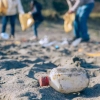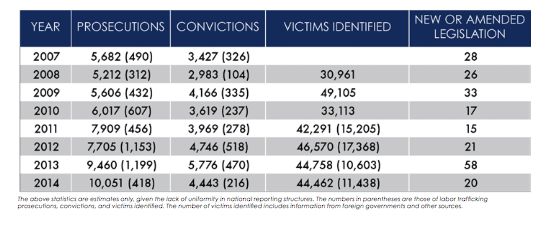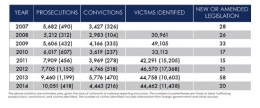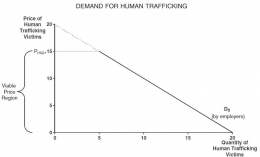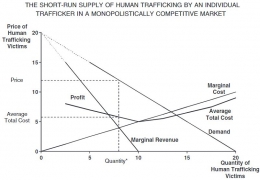'A Cargo of Exploitable Souls': Understanding The Market for Human Trafficking and The Role of Banking System in Tracking the Trafficker's Activities
Oleh Ester Dwi S.
"Human trafficking is the only industry in which the supply and demand are the same things: human beings. People are demanding the sale of people."
UNICEF USA
Overview
Human trafficking is a form of slavery with new manifestations brought about by industrial globalization and sexual tourism spots. Slavery was then seen as the root of the emergence of human trafficking (Syamsuddin, 2020), which was seen as commonplace and accepted by society. Upper-class groups made transactions with slave dealers and made those who were bought as workers in fields, houses, or industrial factories. The treatment of slave buyers to slaves, from the current social and moral perspective, is an act that castrates fundamental human rights. Slaves are not named, with poor health and sanitation facilities and limited food availability (Syamsuddin, 2020).
The term 'human trafficking' initially included white women turned into prostitutes and groups of children and women forced to work as prostitutes. Then, only in 1999, The Global Alliance Against Traffic in Women (GAATW) add forced labor to sexual exploitation as a form of human trafficking (Kathryn 2009; Syamsuddin 2020). Thus, human trafficking in both labor and sex industry workers violates human rights to be exchanged for materialistic commodities such as money. The Polaris Project, a non-profit, non-governmental organization that works to combat and prevent sex and labor in North America, defines trafficking human trafficking as a business in the form of theft of liberty for profit. Furthermore, the United Nations Protocol 2000 defines human trafficking in the broader spectrum. Human trafficking includes starting from the process of recruitment, transportation, transfer, smuggling, and sending people, using threats or coercion, and using power to suppress people, the position of vulnerable groups of people. Exploitation includes the exploitation of prostitution or other forms of sexual exploitation, forced labor or services, slavery or other equivalent practices, and illegal organ trafficking.
The global estimation report by the International Labor Organization (ILO) and the Walk Free Foundation, in collaboration with the International Organization of Migration (IOM), estimates that around 40 million people globally were trafficked during 2016 as labor and forced marriages. Cumulatively during 2011-2016, as many as 89 million people have been trafficked worldwide. Modern slavery in forced labor and forced marriage mainly occurs in Africa and the Asia Pacific. They find that 7.6 people per 1,000 people are trafficked in Africa, slightly lower than Asia Pacific's 6.1 people. The area of Europe and Central Asia is about half that of Africa, which is 3.9 people per 1,000 inhabitants. Developing countries are still the leading supplier regions for victims traffickers bring to destination countries: mainly are developed countries. However, in the same estimation report, it is emphasized that the tendency of human trafficking in Africa and the Asia Pacific region needs a more profound examination, given the availability of data that is difficult to obtain in some areas.
Human trafficking can target various elements of society ranging from women and men; children and adults; and certain races and ethnic groups. This type of crime does not originate from a single factor, but many complex factors spread from social, political, to environmental dimensions. Aronowitz (2009) explains the difficulty of measuring the scale and implications of human trafficking due to various conditions such as; lack of legislation and inadequate definitions of human trafficking, lack of political will, lack of experience in dealing with issues, corruption, and the inability and unwillingness of victims to cooperate. Even so, the emergence of human trafficking in an area will undoubtedly impact victims and the wider community. For example, the implications of human trafficking in the economic field target the public and taxpayers. Trafficking represents the loss of domestic opportunities from the country's human resources, including the loss of individual maximum potential and productivity in the long term (US Department of State, 2011).
What Fuels Human Trafficking?
Every year, human trafficking is growing and appears in increasingly diverse variations. The US State Department (2011) explains that at least three primary factors have led to increased cases over the last 15 years: the global economy and globalization. Globalization's openness and ease of exchanging resources and information have become an opening route for the transfer of groups of vulnerable people to regional groups who want low-cost labor. UNICEF USA then explained more broadly why human trafficking is continuing and growing until now.


